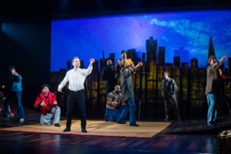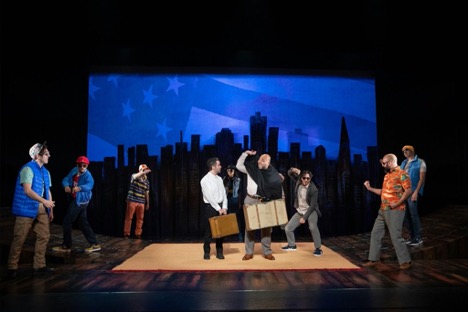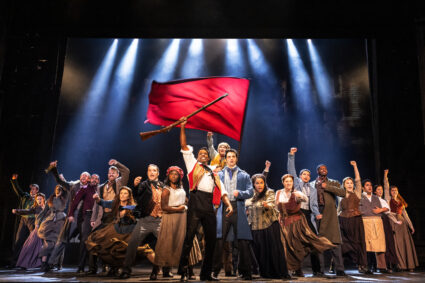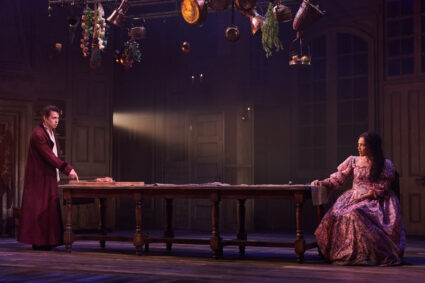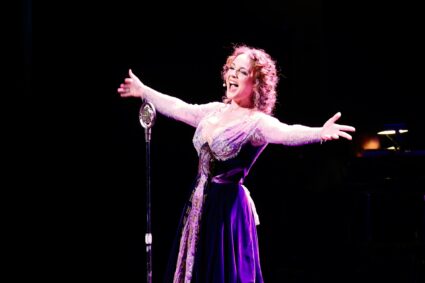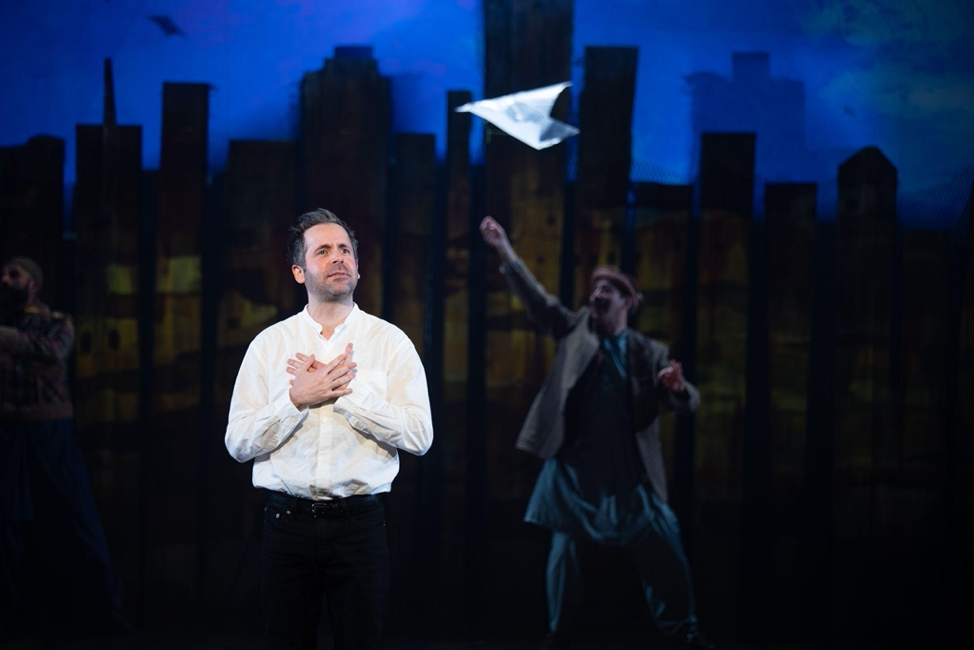
As I stepped into the Eisenhower Theater to see the national tour of The Kite Runner, I wasn’t too sure what to expect. I heard snippets from friends who had read the book that the story itself would be sad, but I had no idea the emotional intensities of heartbreak, fear, and relief I would feel in those two hours and 30 minutes of watching the show and even a few days after, as the intense emotions are now flooding back while I write this review.
The story takes place first in 1973 in Kabul, Afghanistan, where we watch two young boys, Amir (played by Ramzi Khalaf) and Hassan (Shahzeb Zahid Hussain), spend their days together. Hassan and his father, Ali (Hassan Nazari-Robati), grew up as servants to Amir and his father, Baba (Haythem Noor), causing both families to share a closeness, with Baba never missing Hassan’s birthdays and treating him like his own son, while Amir continuously fights for his father’s approval.
As the play continues, we watch the two men face many adversities within Kabul. Some of them are smaller obstacles, like winning the annual kite-flying competition, while others are larger and heartbreaking to see children undergo, like experiencing racial prejudice or suffering physical, verbal, and sexual abuse from a demented bully, Assef (Wiley Naman Strasser).
The storytelling abilities of this production have you entranced and engaged throughout the entire production. Since it was adapted from the 2003 novel of the same name by author Khaled Hosseini, there are a lot of key elements, themes, and events jam-packed into one play, so one can expect these to get lost in the flow, but that was never the case in this production.
Matthew Spangler’s adaptation seamlessly weaves together a show that never fails to leave you on the edge of your seat and consistently feeling an abundance of emotion as we watch Khalaf narrate his past. He gracefully shifts from the past and present with a stronger Farsi accent when portraying a child and a more American dialect when retelling the story as an adult. Though Amir regularly moves from narrating to becoming a character in the story, it’s incredibly easy to tell the difference between the two thanks to Hosseini’s distinctive and impressive acting abilities as well as the artistic direction and blocking from director Giles Croft.
The flawless transitions can be seen in all aspects of the show, from the excellent ensemble cast playing multiple characters simultaneously to the graceful movement of the set pieces around them. Though many set pieces, props, and lighting pieces are used to transport us to different settings, from Afghanistan to Pakistan to San Francisco, the production still uses a more minimalist style, so that audiences can easily understand the characters’ locations, while also using imagination to explore each setting. Every set piece, prop, and design was intentional and meaningful, as the cast used wooden hand-cranking instruments to mimic the wind pushing the kits and singing bowls to capture the intensity of the deeply unsettling interactions with Assef. One of my favorite symbolic visual elements was the carved set piece made to look both like a wooden fence and the San Francisco skyline.
As the emotional journey of the show continues, audiences travel alongside Amir to witness him make mistake after mistake in his struggles to gain courage and fail to fight for those he loves. Khalaf does a fantastic job of giving the audience hope and breaking our hearts as Amir undergoes violence, displacement, and acceptance from others around him and, more importantly, himself. The decision to have Khalaf remain onstage throughout the entire performance was a bold and genius one, as Amir is forced to relive all of his past moments, even if they’re significantly uncomfortable for him.
Hussain does a remarkable job as the loyal, kind, and wise Hassan. I could physically feel the atmosphere shift and the agony everyone in the audience shared with him as his sweet and lovable character endured many acts of violence and racial discrimination. Though there are difficult moments to watch, Hussain does a wonderful job of enchanting the audience with his charm and childlike wonder as he reenacts cowboy movie scenes, listens to Amir’s stories, and chases kites. Though we see less of Hassan in the second act, the distinctions and similarities Hussain builds as he later portrays Hassan’s son, Sohrab, are also breathtaking and excite the audience to see more of Hussain’s engaging stage presence.
The supporting characters in this show only strengthen the impact of the story and keep audiences enlightened and engaged throughout. Noor plays a strong, confident, harsh, but secretly loving businessman and father to Amir, while Nazari-Robati contrasts him well as the shy and compassionate father to Hassan. Awesta Zarif helps show another side to Amir as she plays his patient and understanding wife, Soraya. Possibly the most powerful role in the show, Strasser gives the audience a bone-chilling performance of the disturbed Assef, making almost the entire audience actively gasp and groan at each sight of his character’s reappearance.
Eisenhower Theater’s production of The Kite Runner more than exceeds expectations with this captivating tale of redemption, forgiveness, friendship, and hope. It’ll leave audiences with intense emotions and thoughts for hours and even days after watching.
The Kite Runner national tour played through June 30 at the Kennedy Center in the Eisenhower Theater.
Final Grade: A+
